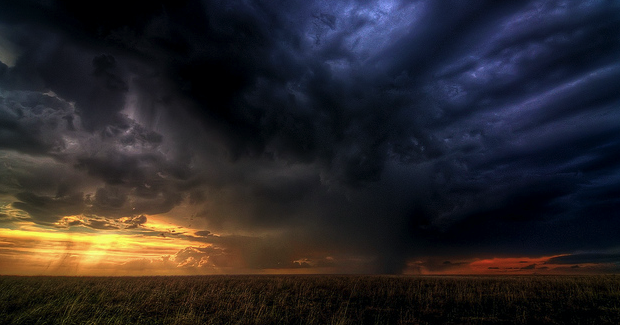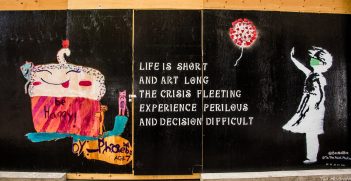The Influence of Non-State Actors on Global Politics

A popular tweet suggested that 20 years from now, when at a quiz night and faced with the question “in what year?”, the answer “2016” will have a good prospect of scoring big time. The events of this year have caused much debate on social media as they appear to illustrate the chaos of a more inter-connected and fast-paced world. Non-state actors seem to be wielding ever more influence on global politics and new approaches to problems are required.
We are experiencing a world troubled by natural catastrophes, civil war, global epidemics, rampant terrorism, economic inequality, authoritarian rule, populism, rising crime and violence. At the same time, traditional political and social institutions are experiencing high levels of dissatisfaction and the pressure on governments to deliver in Western liberal democracies is unrelenting. International relations as we know them—the international order since the Cold War—is being deconstructed and reconstructed as we speak. So how do we possibly make sense of what is happening?
Power transferred from the state
Much to the detriment of traditional thinking on global affairs, the premise of the state as the primary actor is under enormous challenge. Recent global events underscore how the influence by non-state actors and individuals is growing in world politics. This development has been enabled by an atmosphere in which the flow of both information and disinformation enables the adoption of narratives not necessarily based on sound facts and objective knowledge. The atmosphere has changed the playing field for states and opened up the space for anyone who can create a competing narrative, a kind of information war.
The weakening role of states in global politics has long been predicted as a consequence of globalisation. Evidently, this is coming true. Our traditional democratic political and social institutions are being questioned and confronted from several directions—both internally and externally—by non-state actors and individuals.
Brexit, Trump and the Islamic State
Political events such as Brexit in the UK, Trump’s success in the US or the establishment of a caliphate in Iraq and Syria highlight how power has transferred from the traditional key player in world politics—the state—to influential individuals and non-state actors. Nigel Farage, as the frontman of the UK Independence Party, managed to conduct a campaign convincing voters of the perceived benefits of a Brexit. Trump has used his narrative to attract a following based on fear of Islam and mistrust in the political system. Abu Bakr Al-Baghdadi has proclaimed an Islamic State with himself as the rightful caliph and attracted foreign fighters from all corners of the world. All while the traditional political actors have watched from the sidelines.
These significant political events all stress the importance of the role of the narrative. It appears that those in government have taken a business-as-usual approach to politics and then found themselves defeated or in a position of constantly having to defend themselves against competing narratives. This tarnishes and subtracts from their day-to-day acts of governing and policy-making. In a political environment where governments are increasingly preoccupied with protecting themselves against information warfare, trust in the political institutions will only dwindle further as we witness opportunists such as Wikileaks making the most of this new phenomenon.
From counter-terrorism to countering violent extremism
One other field where the role of non-state actors and individuals is now being stressed is in responding to terrorism. With the issue of terrorism and violent extremism increasingly being acknowledged as social issues rather than simply matters of security, the approach to the issues has accordingly moved from mainly the realm of the state to that of civil society. Therefore, the definitional transition from counter-terrorism to countering violent extremism. If we are to get to the root causes of the problem of terrorism and violent extremism we have to look at the social context in which it arises. Countering violent extremism provides a more holistic approach to the multi-dimensional issues targeting the social aspects that give way for various kinds of violent extremism.
In this sense, countering violent extremism efforts are now being rolled out around the world where concepts such as local resilience and counter-narratives are being highlighted as key strategies to target the issue of global radicalisation of youth and the propaganda used by groups such as ISIS. Counter-terrorism scholars have identified that these efforts are often more effective if they emanate from non-state actors as state-driven campaigns often lack the necessary trust in the first place. Using civil society actors and more unorthodox voices, such as ‘formers‘ (formerly radicalised youth), victims etc., not only does one facilitate trustful messengers for counter-narratives but also government policy becomes more legitimate in general. Governments should therefore tap into grassroots-driven initiatives and rethink their top-down approach, movings towards one characterised as bottom-up.
Politics about “hearts and minds” more than “knowledge and science”
In light of liberal democracy increasingly being challenged by authoritarian rule, not least witnessed in the response to the crisis in Syria, the benefits of traditional institutions and norms are being questioned. In a global world characterised by instant flow of information and disinformation, the individual’s ability to discern between rational and irrational is being challenged. It therefore almost becomes a question of appealing to people’s hearts and minds—their personal experience—rather than necessarily sound facts.
These two phenomenon in themselves, the undermining of liberal political institutions and the free flow of information, enable manoeuvering space for non-state actors and individuals—or demagogues such as Farage and Trump—alike. There is increasingly room for manipulation of information enabling power to be transferred from states to others such as non-state actors, individuals or other states for that matter—a new trend.
The counter-terrorism field appears to be one that has gradually adapted to the challenge posed by narratives and is now engaging civil society as part of countering violent extremism, however, there are many more fields where the state has to learn how to deal with these new challenges. In an age where both human agency and soft power increasingly appear to be mainly utilised in the context of personal gain and propaganda, it is hard to envision a positive outlook on global contemporary world politics.
Anne-Marie Balbi is a PhD candidate at the Department of Social Sciences and Security Studies at Curtin University. Her research explores soft counter-terrorism strategies and she teaches in the fields of international relations and terrorism studies. She has previously been published in the AIIA’s Emerging Scholars and is currently an AIIA for WA committee member. This article is published under a Creative Commons Licence and may be republished with attribution.





